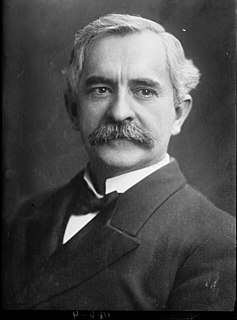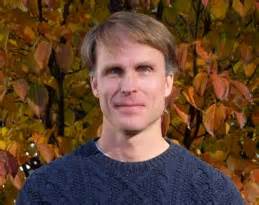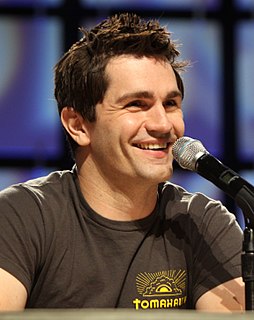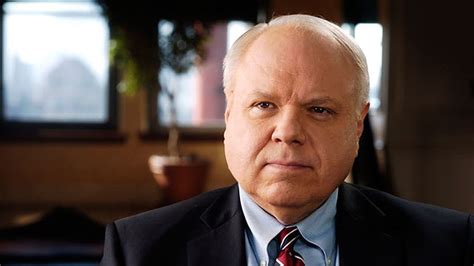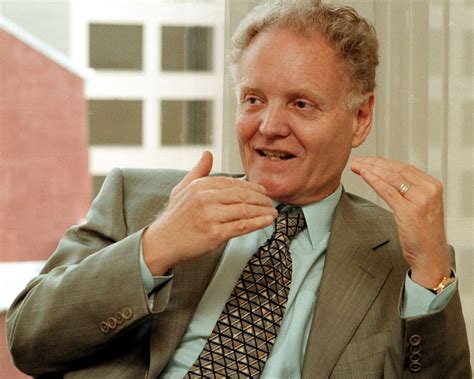Top 617 Mythology Quotes & Sayings - Page 11
Explore popular Mythology quotes.
Last updated on April 16, 2025.
When I first encountered the poems of Jon Woodward, I was stunned into the state that is my life's joy-I was in the presence of the inimitable. Uncanny Valley extends that experience-almost into another dimension. These apocalyptic, pixilated poems forge a mythology of our ravaged culture, one that might have been written in the future. If you want poetry to give you a persimmon on a plate, look elsewhere; if you want to know what happens when seven trees fall on the highway and the story is told by a stutterer, this is the book, and it could only have been written by Woodward.
No Geologist worth anything is permanently bound to a desk or laboratory, but the charming notion that true science can only be based on unbiased observation of nature in the raw is mythology. Creative work, in geology and anywhere else, is interaction and synthesis: half-baked ideas from a bar room, rocks in the field, chains of thought from lonely walks, numbers squeezed from rocks in a laboratory, numbers from a calculator riveted to a desk, fancy equipment usually malfunctioning on expensive ships, cheap equipment in the human cranium, arguments before a road cut.
We have accounts of the deification of men in pagan mythology. But I do not remember any account of a god becoming a man, to help man. Whoever heard of Jupiter or Mars or Minerva coming down and attempting to bear the burdens of men? The gods were willing enough to receive the gifts of men, but Christianity is unique in the fact that our God became a man with human infirmity and emptied Himself of the glory of heaven, in order that He might take upon Himself the sins, diseases and weakness of our humanity.
As to the "traditional filler of twenty-first century realist fiction," maybe that is something I avoid. I don't relate to standard psychologizing in novels. I don't really believe that the backstory is the story you need. And I don't believe it's more like life to get it - the buildup of "character" through psychological and family history, the whole idea of "knowing what the character wants." People in real life so often do not know what they want. People trick themselves, lie to themselves, fool themselves. It's called survival, and self-mythology.
Since religion intrinsically rejects empirical methods, there should never be any attempt to reconcile scientific theories with religion. An infinitely old universe, always evolving, may not be compatible with the Book of Genesis. However, religions such as Buddhism get along without having any explicit creation mythology and are in no way contradicted by a universe without a beginning or end. Creatio ex nihilo, even as religious doctrine, only dates to around AD 200. The key is not to confuse myth and empirical results, or religion and science.
Freudian psychoanalytical theory is a mythology that answers pretty well to Levi-Strauss's descriptions. It brings some kind of order into incoherence; it, too, hangs together, makes sense, leaves no loose ends, and is never (but never) at a loss for explanation. In a state of bewilderment it may therefore bring comfort and relief.... give its subject a new and deeper understanding of his own condition and of the nature of his relationship to his fellow men. A mythical structure will be built up around him which makes sense and is believable-in, regardless of whether or not it is true.
...the prominent Egyptian government minister, university professor, and writer Taha Hussein...devoted himself to the study of pre-Islamic Arabian poetry and ended up concluding that much of that body of work had been fabricated well after the establishment of Islam in order to lend outside support to Koranic mythology.... [T]he Iranian journalist and diplomat Ali Dashti...repeatedly took his fellow Muslims to task for not questioning the traditional accounts of Muhammad's life, much of which he called myth-making and miracle-mongering.
I worked out a book which I thought was just straight science fiction -- with everything pretty much explained, and suddenly I got an idea which I thought was kind of neat for working in a mythological angle. I'm really struggling with myself. It would probably be a better book if I include it, but on the other hand I don't always like to keep reverting to it. I think what I'm going to do is vary my output, do some straight science fiction and some straight fantasy that doesn't involve mythology, and composites.
Darth Maul dies and it's okay. And maybe he'll be picked up later and another actor will play him and that's okay. However if they call me up and they need him for this or that and they want me to play him, then that's okay too. I do actually love this character. I feel strongly about him. I feel badly for him and if there's anything more I can contribute to him or the larger Star Wars mythology I will continue to do so and if my time has come then I will watch as a fan the way I have since I was born.
It's always been you know, religion that has been the primary impediment to actual relationship with God, because it creates a mythology about performance -- that you can perform your way into the appeasement of the deity. And you know, when you're born inside the cultural framework that I was, and you're born inside the religious traditions that I was, that becomes your understanding of spirituality: That it's about trying to please God. So, it's really not about God at all; it's about our ability to perform according to whatever the expectations are.
I think this mythology - that we're all beyond race, of course our police officers aren't racist, of course our politicians don't mean any harm to people of color - this idea that we're beyond all that (so it must be something else) makes it difficult for young people as well as the grown-ups to be able to see clearly and honestly the truth of what's going on. It makes it difficult to see that the backlash against the Civil Rights Movement manifested itself in the form of mass incarceration, in the form of defunding and devaluing schools serving kids of color and all the rest.
One of our people in the Native community said the difference between white people and Indians is that Indian people know they are oppressed but don’t feel powerless. White people don’t feel oppressed, but feel powerless. Deconstruct that disempowerment. Part of the mythology that they’ve been teaching you is that you have no power. Power is not brute force and money; power is in your spirit. Power is in your soul. It is what your ancestors, your old people gave you. Power is in the earth; it is in your relationship to the earth.
As the astronomer rejoices in new knowledge which compels him to give up the dignity of our globe as the centre, the pride, and even the final cause of the universe, so do those who have escaped from the Christian mythology enjoy their release from the superstition which fails to make them happy, fails to make them good, fails to make them wise, and has become as great an obstacle in the way of progress as the prior mythologies which it took the place of two thousand years ago.
Up until 1986, the top marginal rate, the top statutory rate was 50 percent. Now it's 35 percent. And all the pressure is on to lower that even further. And this just doesn't make a great deal of sense. When people say, 'Oh, we can't raise taxes on the rich. They'll go on strike, they'll move to another country.' But within recent memory, it hasn't been that long ago that we had rates that were substantially higher. And these people did just fine. I just think that there's a disconnect between the facts of what taxes do and the sort of mythology of what they do.
Our mythology tells us so much about fathers and sons. ... What do we know about mothers and daughters? ... Our power is so oblique, so hidden, so ethereal a matter, that we rarely struggle with our daughters over actual kingdoms or corporate shares. On the other hand, our attractiveness dries as theirs blooms, our journey shortens just as theirs begins. We too must be afraid and awed and amazed that we cannot live forever and that our replacements are eager for their turn, indifferent to our wishes, ready to leave us behind.
There is nothing antithetical in American history, culture, or traditions to teamwork. Teams were important in America's history - wagon trains conquered the West, men working together on the assembly line in American industry conquered the world, a successful national strategy and a lot of teamwork put an American on the moon first (and thus fare, last). But American mythology extols only the individual...In America, halls of fame exist for almost every conceivable activity, but nowhere do Americans raise monuments in praise of teamwork.
The mythology around colorblindness leads people to imagine that if poor kids of color are failing or getting locked up in large numbers, it must be something wrong with them. It leads young kids of color to look around and say: "There must be something wrong with me, there must be something wrong with us. Is there something inherent, something different about me, about us as a people, that leads us to fail so often, that leads us to live in these miserable conditions, that leads us to go in and out of prison?"


